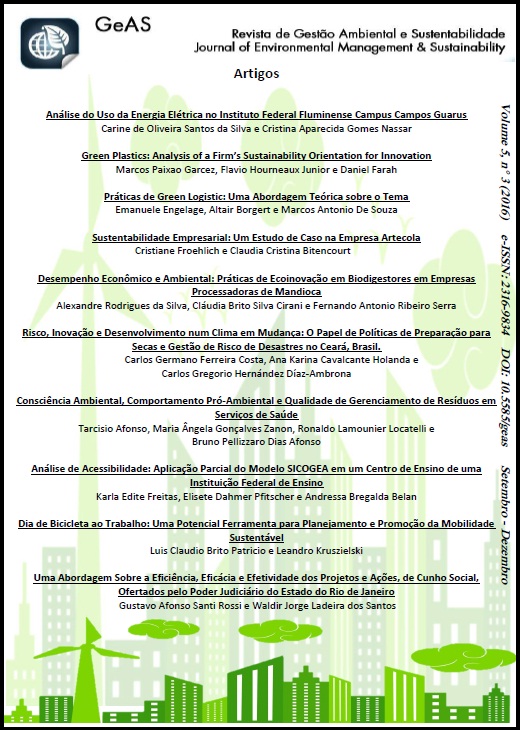Environmental and Economic Performance: Ecoinnovation Practices in Biodigesters of Cassava Processing Companies
DOI:
https://doi.org/10.5585/geas.v5i3.584Keywords:
Ecoinnovation Practices, Envronmental and Economic Performance.Abstract
Biomass, considered one of the main sources of alternative energy, originates from residual organic material such as the cassava crop. Biodigesters are capable of transforming these residuals into biogas and biofertilizers. This allows a reduction of almost 80% in the residual organic material being deposited in the earth or rivers, avoiding deposits accumulating on riverbeds and negative environmental impacts. It also allows substantial savings in terms of energy. The general aim of this study is to investigate, with the implementation of biodigesters, how eco-innovation practices contribute to the economic and environmental performance of cassava processing companies in Paraná State. Through qualitative research, the method employed an exploratory approach and intensive multiple-case analyses, with data collected through semi-structured interviews. The study showed that the eco-innovation practices that were adopted aided the economic and environmental performance of the companies in question. The study contributes to academia with scientific research on biodigester technology using the residual organic material of cassava for sustainable development. It also contributes to the corporate universe by demonstrating an opportunity for sustainable innovation with improved economic and environmental performance, which can be extrapolated to other industrial segments.Downloads
Download data is not yet available.
Downloads
Published
2016-12-01
How to Cite
Silva, A. R. da, Cirani, C. B. S., & Serra, F. A. R. (2016). Environmental and Economic Performance: Ecoinnovation Practices in Biodigesters of Cassava Processing Companies. Revista De Gestão Ambiental E Sustentabilidade, 5(3), 72–86. https://doi.org/10.5585/geas.v5i3.584
Issue
Section
Artigos










